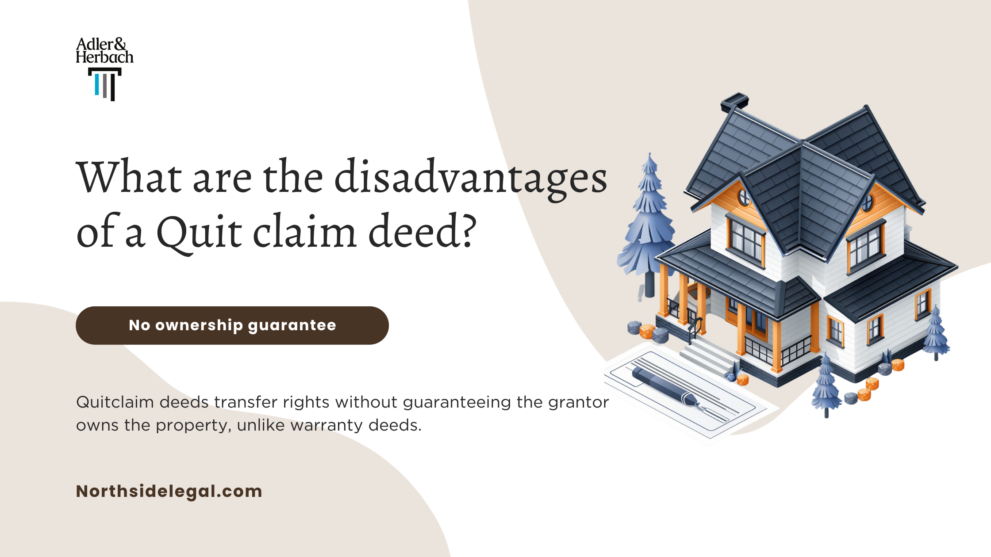Let’s explore quitclaim deeds – what they are, their pros and cons, and when to use them. We’ll cover why they’re great for simple property transfers between family members, but not the best choice for regular sales. Knowing about quitclaim deeds will help you make smart decisions when transferring property.
What are the disadvantages of a quit claim deed?
While a quitclaim deed has many legitimate uses, there are disadvantages that you need to be aware of. Unlike other types of deeds, a quitclaim deed does not provide any claim or guarantee that the grantor (the party giving the property) owns any interest in the property to begin with. It merely “quits” any rights that the grantor MAY have in the property. This is unlike a warranty deed, where the grantor is warranting, or promising, that they own the property and have the right to transfer it. For this reason, the uses for a quitclaim deed are different from uses of other types of deed.

Home Buyer’s Essential Guide
Get the Secrets to a Smooth Home Buying Experience!

Expert-Curated Guide:
- 43-page, mobile-friendly guide for first-time home buyers.
- Covers all aspects from mortgage acquisition to home settlement.
- Touted as the only needed guide for homebuyers.
- Widely praised by locals.
What are some common uses for a quitclaim deed?
Quitclaim deeds are commonly used in situations where the person giving the deed (the “Grantor”) does not need to provide any assurance that he or she owns the property to begin with.
- For example, if a parent wants to give their house to their child as a gift, the child is not expecting any assurance or guarantee that the parent is giving them clear title to the property.
- Similarly, a newly married person that wishes to add their spouse to the title on their home is not obligated to “warrant” that the house belongs to them.
- Another use would be an individual that wants to transfer a property that is in their own name to a company or LLC for liability reasons.
All of these are typical situations in which a quitclaim deed would be used.
Learn more about
What are situations in which a quitclaim deed should not be used?
Unlike the situations above, a quitclaim deed should not be used any time the person getting the property (the “Grantee”) wants assurance that they are actually receiving the property in the deed.
The most obvious situation is a normal purchaser, where the buyer is paying fair value for the property. Since a quitclaim deed does not provide any assurance or promise that the seller owns the property, it would not be appropriate to use a quitclaim deed in a normal sale and purchase situation.
Another reason why a quitclaim deed should not be used in a traditional sale of property is that title companies will generally not insure a sale by QCD. Since most buyers want title insurance to protect their property purchase, a quitclaim deeds will not usually work.


